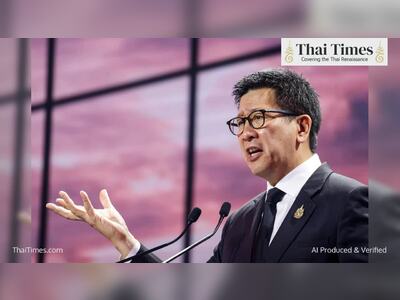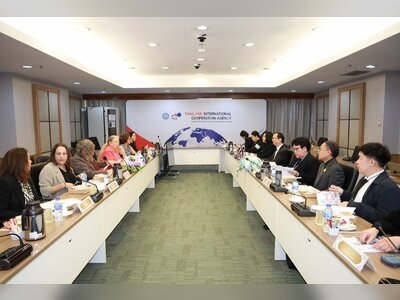Promotion of Palliative Care Knowledge Enhanced
According to the National Health Act 2007, Section 12, individuals can create a living will to detail their end-of-life medical preferences.
The NHCO and Region 1 Health Provider Office recently hosted an educational forum on this subject for 300 healthcare workers and volunteers in Chiang Mai.
A living will instructs healthcare professionals and relatives on a patient’s end-of-life care, especially when they can no longer communicate, explained Dr. Suthit Khunpradit of Lamphun Hospital.
Dr. Suthep Phetmak, NHCO’s secretary-general, noted that Thailand’s ageing population and rising chronic diseases could push healthcare costs to 200 billion baht by 2037.
He emphasized that treatments prolonging the life of terminal patients are often ineffective, straining families and the healthcare system.
Dr. Suthep stressed that palliative care is vital for enhancing end-of-life quality, but awareness and acceptance of natural death are still developing in Thailand.
According to Dr. Chortip Prommarat of Lamphun Hospital, the objective is to ensure patients live better or pass peacefully rather than suffer from unnecessary life-prolonging treatments. Advanced care planning and palliative care can alleviate suffering and aid in fulfilling patients' final wishes.
The NHCO and Region 1 Health Provider Office recently hosted an educational forum on this subject for 300 healthcare workers and volunteers in Chiang Mai.
A living will instructs healthcare professionals and relatives on a patient’s end-of-life care, especially when they can no longer communicate, explained Dr. Suthit Khunpradit of Lamphun Hospital.
Dr. Suthep Phetmak, NHCO’s secretary-general, noted that Thailand’s ageing population and rising chronic diseases could push healthcare costs to 200 billion baht by 2037.
He emphasized that treatments prolonging the life of terminal patients are often ineffective, straining families and the healthcare system.
Dr. Suthep stressed that palliative care is vital for enhancing end-of-life quality, but awareness and acceptance of natural death are still developing in Thailand.
According to Dr. Chortip Prommarat of Lamphun Hospital, the objective is to ensure patients live better or pass peacefully rather than suffer from unnecessary life-prolonging treatments. Advanced care planning and palliative care can alleviate suffering and aid in fulfilling patients' final wishes.











